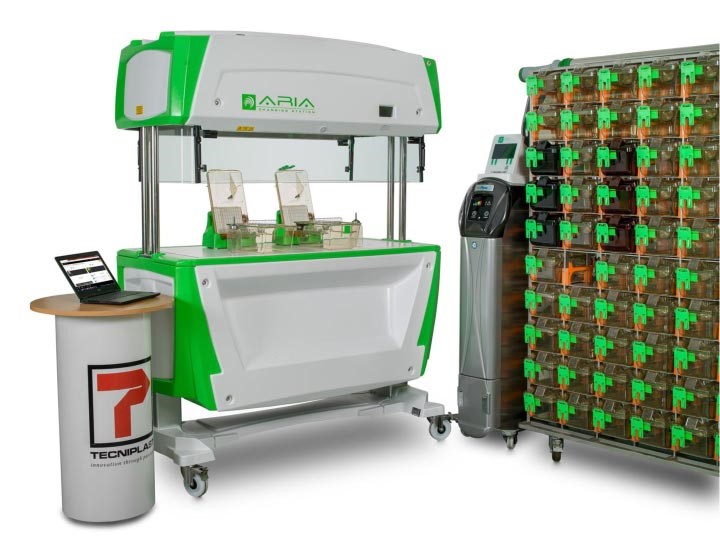Advancing Animal Welfare and Pharmaceutical Development
Organiser: Stefano Gaburro, Tecniplast (Italy)
Schedule: Meeting Room 7, Wednesday 16th May 11:30 – 12:50
11:30 – 11:50 Stefano Gaburro – Home cage rack-based technology: welfare and scientific applications
11:50 – 12:10 Michael Tsoory – Detecting Sciatic nerve injury (SNI) induced motor impairments and recovery using the DVC system; a core facility unit user’s perspective
12:10 – 12:30 Fabrizio Scorrano – Use of rack base technologies in Pharmaceutical Settings
12:30 – 12:50 Thomas Svava Nielsen – Urination in the Home Cage: Development of a Digital Biomarker for Sample-Free Diagnosis of Diabetes in Mice
Description:
The burgeoning field of digital animal research takes centre stage at this symposium, illuminating the integration of cutting-edge technology with conventional cage environments. At the forefront, we introduce Tecniplast’s Digital Ventilated Cages – a game-changing tool that amalgamates advanced home cage monitoring with enhanced animal welfare, aligned with the 3Rs principle (Replacement, Reduction, Refinement).
The event will commence with an insightful exposition, elucidating the underlying technology of these digitally ventilated cages. We will offer a deep dive into the ethos of home cage concepts, emphasizing the tangible benefits they bring in terms of assisted welfare following the 3Rs model.
Following this introduction, the next speaker will share his experience with assessing the capacity of monitoring home-cage activity in studies of nerve injury and recovery. Data will be presented from studies that utilized sciatic nerve injury induced motor impairments. The presented data will include home-cage activity as compared with gait and stride indices. Additional discussion will address advantages and disadvantages of monitoring home-cage activity from a user perspective.
In the following segment, we will introduce the audience to the integration of Artificial Intelligence in animal research. He will shed light on AI-driven welfare and digital biomarkers models that are poised to revolutionize how we perceive animal behavior and welfare, harnessing the power of data and machine learning to detect subtle cues and predict outcomes.
The symposium will conclude with a presentation on the multicentric study concerning polyuria detection. This research, significant in its implications, aims to establish novel markers for hyperglycemia/diabetes, offering promise in timely disease detection and intervention.
Join us for this engaging rendezvous where technology meets biology, aiming for a future where research is advanced and humane.

 Measuring Behavior
Measuring Behavior